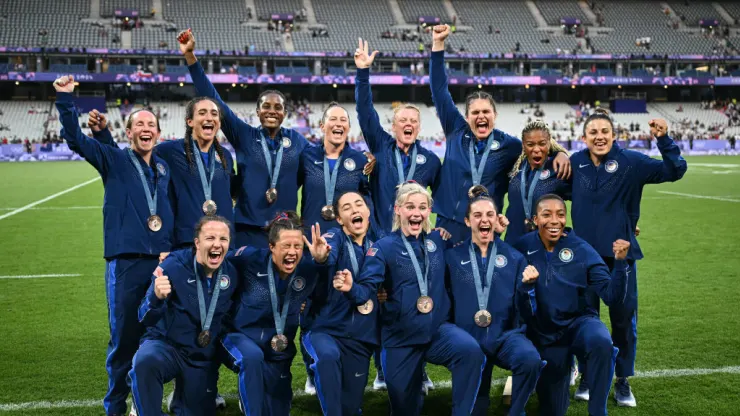

Earlier this week, the U.S. women’s rugby sevens team earned their first Olympic medal in history, and it marks a positive turn for the women’s sport that’s been overlooked for decades. “The impact was enormous. I mean, there’s no other way to put it,” says Phaidra Knight, a former U.S. women’s rugby sevens team player and World Rugby Hall of Fame inductee. “It will have incredible and substantial implications for the future of not only women’s rugby, but rugby in America.” Knight is a rugby analyst and was part of NBC’s broadcast team for this year’s Olympic games in Paris. Don’t miss: Sunny Choi quit her six-figure job to breakdance in the Olympics: ‘For the first time, I was betting on myself’ Shortly after the historic win, the sevens team received a $4 million donation from Michele Kang, owner of several women’s soccer clubs and a dedicated supporter in the “advancement of women’s sports,” according to the official USA Rugby’s site. Kang’s huge investment, which will be invested over the course of four years in preparation for the 2028 Summer Olympics, may be a smoke signal that more investors will follow. When Knight became a player on the U.S. National Rugby union team, which is different from the sevens team, in 1999, the program didn’t receive funding, she says. Many professional rugby players join the U.S. National union teams prior to joining a sevens team; four national teams are under USA Rugby. “I oftentimes had to pay to play with the U.S. I had to pay [a] camp fee and also would most times have to pay for my travel, for my flight, and obviously had to take time off work,” Knight says. “There was no per diem or any sort of supplement provided, so that was a tough burden to bear for all of us.” We’ve always wanted to be included, right at the table. And the men would shut the door. Phaidra Knight Former U.S. women’s rugby sevens team player Knight played in three Rugby World Cups and says World Rugby would provide a supplement to help with those costs and expenses. “We would work with the different clubs around the country to fundraise,” she says. ‘We’ve always wanted to be included, right at the table’ Funding for the men’s national rugby teams in the U.S. was noticeably different compared to the women’s teams. Even when Knight had her debut in 1999, there was a significant financial difference despite the U.S. women’s team having won the 1991 Rugby World Cup. The U.S. men’s rugby teams “at least did not have to pay to play. The USA Rugby budgeted more money to them. It was just that much of an inequity,” she says. “We’ve always wanted to be included, right at the table. And the men would shut the door.” Now, thanks to investments from philanthropic groups like the Golden Eagles and a push for more funding from USA Rugby, players in the sevens program no longer have to pay to play. Players on the women’s U.S. Rugby sevens team receive salaries and are able to focus on rugby full time, Knight says. The average salary for players in the sevens program can range, with some receiving money from private donors. “They haven’t had to pay to play. But, historically, in the beginning, even with the Olympics, some of these players had to work. They had to work jobs,” Knight says. “Now, I think they’re at a point where they don’t. But are they making the money that other professional athletes in other sports make? No.” The pay inequities that women players in rugby face compared to their male counterparts mirror the discrepancies between salaries for WBNA players and NBA players. But Knight sees an optimistic future for women’s rugby following this summer’s Olympic games and compares it to the attention the WNBA has received following the excitement that Caitlin Clark and Angel Reese brought to the industry. With more donations like Kang’s and hopefully sponsorships for women’s Rugby players soon, Knight believes we’ll all be keeping a closer eye on the sport. There’s been “this talk for the last 10 plus years, maybe a decade or two, about America being the sleeping giant of rugby,” she says. “And when this sleeping giant awakes, oh my God it’s going to be crazy because of the sports market in America and how lucrative it is.” The U.S. has won hosting rights for the 2031 Rugby World Cup. “Most of the people that are in charge and making these decisions were men, and they hung their hats on the fact that men’s fifteens was that sleeping giant that would awaken, and all of this greatness would happen,” she adds. “But the sleeping giant, in fact, is women’s rugby.”